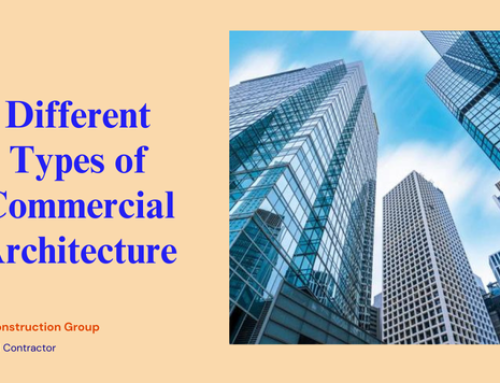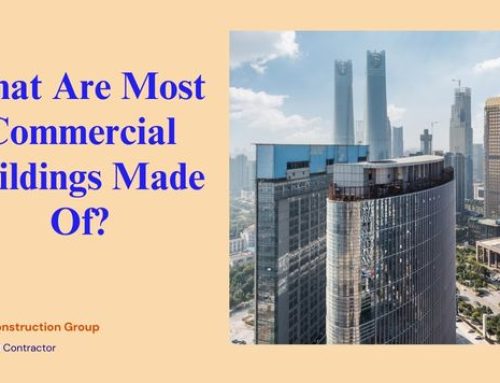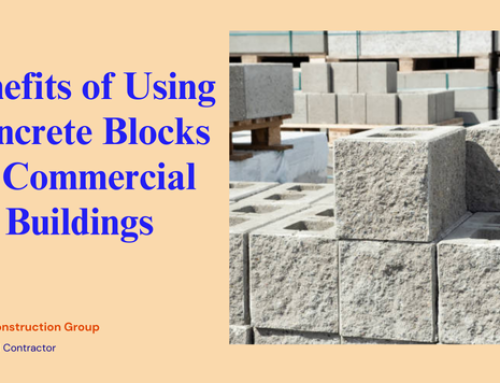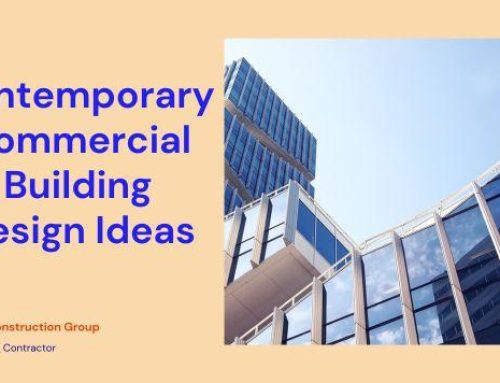Launching a commercial remodeling project can feel overwhelming. The stakes are high—your business space represents your brand, operations, and success.
Yet, one bad choice in hiring a contractor can result in missed deadlines, shoddy workmanship, and spiraling costs.
Sound familiar? Don’t worry; you’re not alone.
The good news? You can avoid these pitfalls by asking the right questions upfront.
This guide enlists the right questions to ask, ensuring you hire a reliable contractor for your project.
But before moving on, let’s understand why asking these questions to commercial remodeling contractors before hiring them is important.
Contents
- 19 Questions to Ask Commercial Remodeling Contractors
- 1. What Is Your Experience in Commercial Remodeling?
- 2. Are You Licensed to Work in Los Angeles?
- 3. Do You Carry Insurance?
- 4. Can You Provide References or a Portfolio?
- 5. What Is Your Process for Estimating Costs?
- 6. Will You Handle Permits and Inspections?
- 7. Who Will Be Managing the Project?
- 8. What Is the Timeline for Completion?
- 9. How Do You Handle Changes During the Project?
- 10. What Safety Measures Do You Have in Place?
- 11. What is included in the contract?
- 12. Can You Provide a Written Contract?
- 13. Do You Offer a Warranty for Your Work?
- 14. How Do You Communicate During the Project?
- 15. What Materials Do You Recommend for My Project?
- 16. Do You Have Experience with Energy-Efficient Upgrades?
- 17. What is your procedure for site cleanup?
- 18. How Do You Handle Disputes or Complaints?
- 19. Do You Have Current Projects I Can Visit?
- Summary!
19 Questions to Ask Commercial Remodeling Contractors
1. What Is Your Experience in Commercial Remodeling?
An experienced contractor has a proven track record in handling projects similar to yours. Ask if they’ve worked on spaces like offices, retail stores, or restaurants. For example, remodeling a retail store requires knowledge of efficient layouts for customer flow, while office spaces may require soundproofing and modern workstations. Contractors with relevant experience can anticipate challenges and find effective solutions.
2. Are You Licensed to Work in Los Angeles?
A valid license ensures that the contractor meets state and local regulations. In Los Angeles, commercial remodeling projects often require specific licenses, depending on the work scope. Licensed contractors are also familiar with city building codes, which reduces the risk of delays or penalties. Always verify their license number with the California Contractors State License Board (CSLB).
3. Do You Carry Insurance?
Insurance protects you from liabilities. A contractor should carry general liability insurance to cover damages to your property and worker’s compensation insurance for on-site injuries. Without insurance, you could be held responsible for accidents during the project. Request a copy of their insurance certificate and confirm its validity.
4. Can You Provide References or a Portfolio?
Ask for a list of previous clients or a portfolio of completed projects. Reviewing these helps you evaluate their quality of work, attention to detail, and design capabilities. Contact the references to ask about their experience with the contractor, whether the project was completed on time, and how issues were handled.
5. What Is Your Process for Estimating Costs?
A detailed estimate should include labor, materials, permits, and any other associated costs. For example, if you’re upgrading an office, the estimate should specify the cost of furniture installation, electrical work, and painting. A thorough estimate prevents unexpected expenses and ensures transparency.
6. Will You Handle Permits and Inspections?
Commercial remodeling projects in Los Angeles often require permits for structural changes, plumbing, or electrical upgrades. An experienced contractor will handle the permit application process, schedule inspections, and ensure compliance with local building codes. This saves you time and reduces the risk of fines or delays.
7. Who Will Be Managing the Project?
Knowing who will oversee the project helps streamline communication. Ideally, there should be a dedicated project manager who:
- Provides regular updates on progress.
- Addresses any issues that arise.
- Coordinates between subcontractors and suppliers.
This ensures accountability and keeps the project on track.
8. What Is the Timeline for Completion?
A clear timeline minimizes disruptions to your business. Discuss the expected start and end dates and key milestones. For instance, a timeline for remodeling a retail store might include phases like demolition, electrical work, and final finishes. Ask how the contractor handles delays due to unforeseen issues like material shortages.
9. How Do You Handle Changes During the Project?
Projects often evolve as they progress. A professional contractor should have a process for managing changes, such as updating the contract and adjusting timelines and costs. For example, if you decide to add energy-efficient lighting midway, they should clearly communicate the impact on the budget and schedule.
10. What Safety Measures Do You Have in Place?
Safety is non-negotiable in construction. Contractors should follow OSHA guidelines, provide safety gear for workers, and maintain a clean and organized site. For example, installing barricades to separate construction areas from active business zones can protect employees and customers.
11. What is included in the contract?
A detailed contract outlines the scope of work, timelines, costs, and responsibilities, serving as a reference throughout the project. Clarity in the contract prevents misunderstandings and sets clear expectations.
12. Can You Provide a Written Contract?
A comprehensive contract protects both parties. It should include:
- The project scope.
- Payment schedule.
- Timeline with milestones.
- Warranty terms.
Review the contract carefully and ensure everything discussed verbally is documented.
13. Do You Offer a Warranty for Your Work?
Warranties guarantee the quality of work and materials. For example, if flooring installed during the project cracks within a year, a warranty ensures it will be repaired or replaced. Ask about the duration and coverage of the warranty to avoid future disputes.
14. How Do You Communicate During the Project?
Effective communication reduces misunderstandings. Find out how often they provide updates (daily, weekly) and through what medium (emails, calls, or meetings). Regular updates keep you informed about progress and any issues that require your input.
15. What Materials Do You Recommend for My Project?
Materials impact the durability, functionality, and appearance of the remodeled space. For example, in a restaurant remodel, they might recommend easy-to-clean surfaces for countertops and non-slip flooring for safety. Discuss their material recommendations and why they suit your project’s requirements.
16. Do You Have Experience with Energy-Efficient Upgrades?
Energy-efficient designs reduce operational costs and environmental impact. Contractors experienced in green building practices can suggest upgrades like LED lighting, energy-efficient HVAC systems, and solar panels. Ask about their familiarity with such installations if sustainability is a priority.
17. What is your procedure for site cleanup?
A clean worksite minimizes hazards and disruptions, reflecting the contractor’s attention to detail and professionalism. Proper cleanup procedures also ensure your property is left in good condition post-construction.
18. How Do You Handle Disputes or Complaints?
Even with thorough planning, disputes can arise. Ask how they resolve disagreements and whether they have a formal complaint process. Contractors with a transparent approach to handling issues demonstrate professionalism and commitment to client satisfaction.
19. Do You Have Current Projects I Can Visit?
Visiting an active project site provides insight into their work quality, site management, and adherence to timelines. It’s a great opportunity to see their team in action and evaluate how they maintain cleanliness and safety.
Summary!
Selecting the right commercial remodeling contractors is essential for a successful project. Asking these 19 questions helps you evaluate their qualifications, processes, and ability to meet your expectations. Take your time to research, compare, and choose a contractor who aligns with your vision and goals.
For dependable and high-quality remodeling services in Los Angeles, contact LUX Construction Group. Their experience and dedication make them a trusted choice for commercial projects. Get in touch today to turn your remodeling plans into reality.







